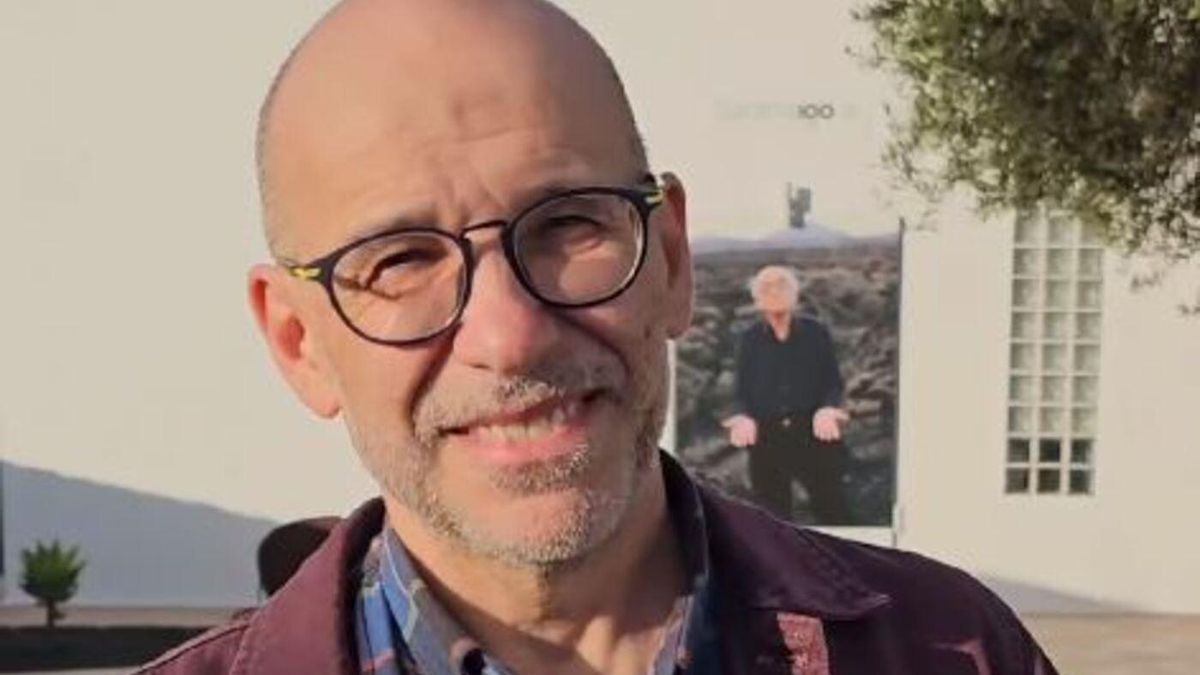
Eugenio Fuentes, a writer, at A Casa de José Saramago in Tías. / Tenerife Noir
Lately, only pessimistic articles come to me. A friend tells me they’re not pessimistic, but rather realistic. The other day, Eugenio Fuentes, when he presented his essay The Depths of the Heart at the Tenerife Noir Festival, explained that black novels are not contemporary realistic novels, because realism shows the lights and shadows of society, whereas noir novels only show the shadows. I began to think that perhaps I am becoming a writer of dark articles. There are no corpses, but there is a certain despair for the human species. Another friend tells me that the problem is not the human species, but a specific context of my life in which we could indeed talk about a thriller. There are no corpses, but there are attempts at emotional homicide. I liked the phrase “attempts at emotional homicide”. Perhaps, criticizing systematically and with malice, is a way of killing someone’s dignity and reputation? Giving nicknames to both the great and the small, isn’t it a way to cold-bloodedly hurt someone’s self-esteem? Enjoying others’ suffering, doesn’t it hide certain psychopathic traits? It’s curious because usually anyone who lives in criticism, in judgement, or in others’ lives, doesn’t realize that they do it because looking outward allows them to escape from looking inward, into that place full of misery in which they dwell. Their own soul. Fortunately, as my friend says, it’s only a small context of my life, but it stinks. Our existence is full of predators and prey. In the jungle, one understands that instinct of survival. Either I devour you, or you devour me. However, we don’t have to go to the savannah to observe how there are, in any job, the pursued and the pursuers. The pursued are those who don’t quite fit in because their way of being is not liked by the pursuers, making them easy prey. The pursuers will seek a thousand and one arguments to justify their behaviour or words; however, it all boils down to attempts at emotional homicide. In one of the round tables I participated in at the festival, I chatted with Francisco Bescós, a noir writer, about how neither in novels nor in life do the good guys always win, and he objected: “The narrative is a human construct, novels are laboratories where these constructs are generated, but when you go out looking for them in life, everything is much more difficult.” Perhaps that difficulty lies in the fact that one believed that evil was only in stories and not in life. Then, the scenario is different, we think we fictionalize life, but what we do is give reality to the tales. Maybe I should stop reading dark genre books and participating in festivals of the same nature. Perhaps it would be beneficial to oil myself as advised by another suspense writer and let everything slide off. Maybe the solution is to put an end to that small context of my life where it’s always carnival and everyone wears masks. The key in this mystery game is that one already knows who the killer is.
















